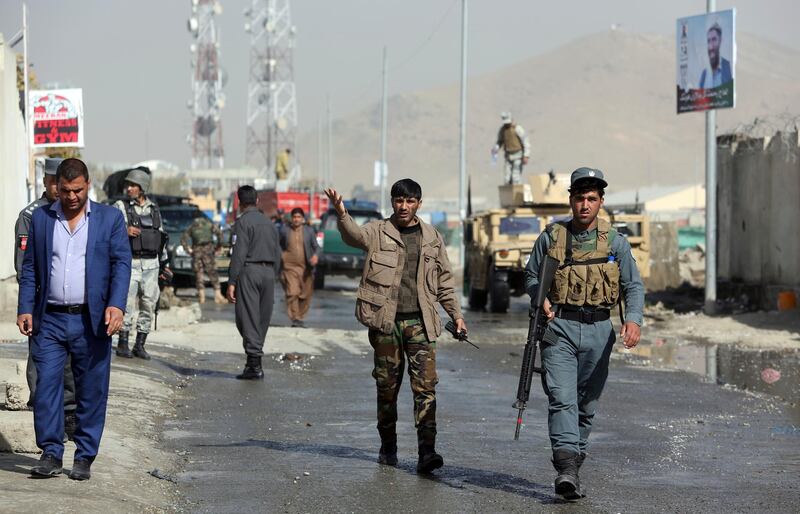Conferences such as the Manama Dialogue, held in Bahrain and organised by the International Institute for Strategic Studies (IISS), play a crucial role in finding solutions to security threats.
But the current global obsession with security, and limited attention to economics, is a concerning trend that must be reversed if security issues are to be successfully addressed.
As an economist attending the event, I benefited greatly from the perspectives of senior policymakers and expert researchers. However, I was struck by the speakers’ emphasis on security, both in terms of their professional backgrounds and in terms of the issues discussed.
Economic concerns were not absent but they usually arose in quite narrow frames, such as in the issue of energy security, or the safe navigation of shipping routes. Moreover, the highly popular theory that terrorism stems from economic deprivation was mentioned by several speakers, despite the fact that the evidence in support of the theory is at best contentious. Beyond the issue of the relationship between poverty and extremism, economic conflicts were treated in the same way as territorial or cultural disputes.
What I wanted to see being acknowledged by the elite policymakers and scholars present was the fundamentally positive impact that economic integration has historically had upon international relations and, as a corollary, the grave threat that the current trend toward economic isolationism poses to world peace.
I recently co-authored a paper with independant researcher Sandra Burkard on the future of international relations in the post-globalisation era, which I presented at a conference hosted by the Emirates Center for Strategic Studies and Research in Abu Dhabi. In the paper, we drew attention to the role that economic relations play as a foundation for diplomatic relations - an argument made by some of the world’s most celebrated philosophers from the classical liberal era, such as Montesquieu, Thomas Paine and Immanuel Kant.
One of the most important channels is that commercial exchange improves relationships between humans. Two quotes illustrate this: Montesquieu writes that “wherever we find agreeable manners, there commerce flourishes; and that wherever there is commerce, there we meet with agreeable manners”. And Paine describes commerce as “a pacific system, operating to cordialise mankind, by rendering nations, as well as individuals, useful to each other”.
Philosophers also encouraged the development of commercial relations as a preventive measure against war. For Montesquieu, “peace is the natural effect of trade”, while Paine emphasised that “if commerce were permitted to act to the universal extent it is capable, it would extirpate the system of war”. Kant unifies both stances, saying, “The commercial spirit cannot co-exist with war, and sooner or later it takes possession of every nation”, and that “Hence states find themselves compelled […] to further the noble end of peace and to avert war, […] wherever it threatens to break out”.
These are more than academic theories; it is easy to find illustrations by examining the history of international relations. One of the most salient is the European Union: after centuries of devastating conflict, Europeans started to integrate economically with the founding of the European Coal and Steel Community. Half a century later, the result is deep levels of cooperation across all domains, Brexit aside, and, most importantly, a lasting peace. Similarly, during the deepest economic crisis of the 20th century - the Great Depression of 1929-1937 - countries adopted aggressive economic stances toward each other, accompanied by the imposition of trade barriers. People started to view economic relations with foreigners with suspicion and the result was the worst conflict in the history of the world, the Second World War.
Looking at the Middle East today, I can’t help but think that the persistence of conflict may be due to an excessive focus on security solutions and an under-deployment of the insights of the classical liberal philosophers. Getting two peoples to trade may build mutual affection in a manner that is superior to cultural exchange programmes or negotiations over a security architecture.
Looking further afield, the current Sino-American trade dispute should be treated as a major security threat as it seeks to undo decades of improved relations between the two countries at the level of normal people. The American-Canadian trade dispute has also caused stress on a relationship that is traditionally unbreakable.
It is not just senior policymakers and security scholars who need to pay attention to this issue. Educational institutions potentially play a more important role: we need to teach our children from a young age how important commerce has been to world peace and how threatening economic isolationism is to our efforts to counter violence.
As Ms. Burkard and I showed in our paper, people suffer from widespread ignorance about the positive role that commerce plays in delivering prosperity, both in terms of the direct economic benefits and in terms of the diminished likelihood of violent conflict.
The United Nations Sustainable Development Goals have helped alert people to the role of economic inclusiveness to peace and prosperity, but this is often interpreted too narrowly as referring to gender- or ethnicity-based discrimination. We need to reach across international borders with the same zeal.
Omar Al-Ubaydli (@omareconomics) is a researcher at Derasat, Bahrain.







